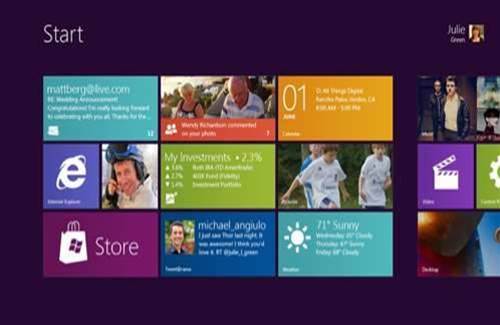Microsoft's sluggish lurch towards touch tablets may see Windows 8 released to a world that has "changed beyond recognition", analysts have warned.

In earlier times Microsoft was a "fast-follower", releasing Internet Explorer shortly after Netscape. Today, Microsoft's fifth-mover status for its Metro-led tablet landing places it well behind the pack and likely out of reach of the benefits that come for fast followers.
"Product strategists often look to be 'fast followers' in their product markets," according to Forrester analyst JP Gownder.
"Perhaps the most famous example is the original browser war of the 1990s: Microsoft’s fast-following Internet Explorer drove incumbent Netscape out of the market altogether,"
But Microsoft is neither fast follower nor laggard in tablets.
A Microsoft engineer gave Apple co-founder Steve Jobs the idea for the iPad, according to Walter Isaacson's biography.
The Redmond engineer initially wanted Apple to license its technology to launch a tablet but it had one fatal flaw -- a stylus. "As soon as you have a stylus, you're dead," said Jobs.
Apple and Samsung will have likely released their third generation tablets by the time Windows 8 launches, while newer players such as Amazon's Kindle Fire drive down prices and with content move the tablet another step away from the stylus.
"Microsoft has missed the peak of consumer desire for a product they haven't yet released."
Sentiments towards Windows as a tablet operating system have changed rapidly, according to Forrester.
In early 2011, Forrester analyst Sarah Rotman predicted Windows 8 would "pose serious problems" for Android, based on research that showed 46 percent of US consumers who would consider buying a tablet would prefer a Windows system, compared with nine percent who preferred Android.
Six months later, preference levels for Windows amongst consumers had dropped to 25 percent.



_(33).jpg&h=140&w=231&c=1&s=0)
_(28).jpg&h=140&w=231&c=1&s=0)
_(23).jpg&h=140&w=231&c=1&s=0)





 iTnews Executive Retreat - Security Leaders Edition
iTnews Executive Retreat - Security Leaders Edition
 iTnews Benchmark Awards 2026
iTnews Benchmark Awards 2026
 iTnews Cloud Covered Breakfast Summit
iTnews Cloud Covered Breakfast Summit
 The 2026 iAwards
The 2026 iAwards












_(1).jpg&h=140&w=231&c=1&s=0)



